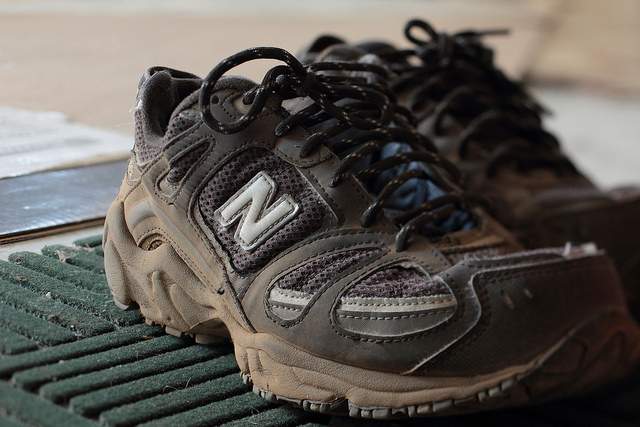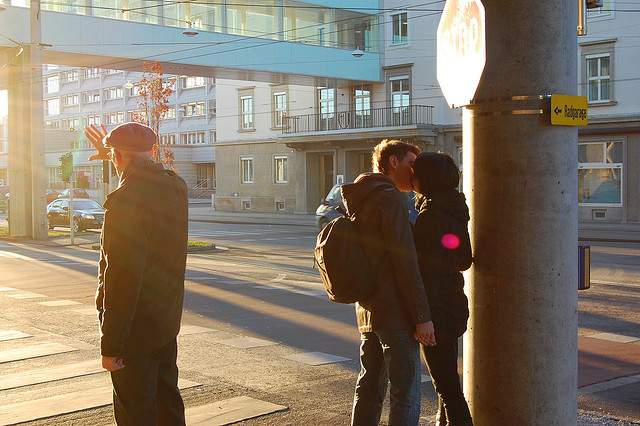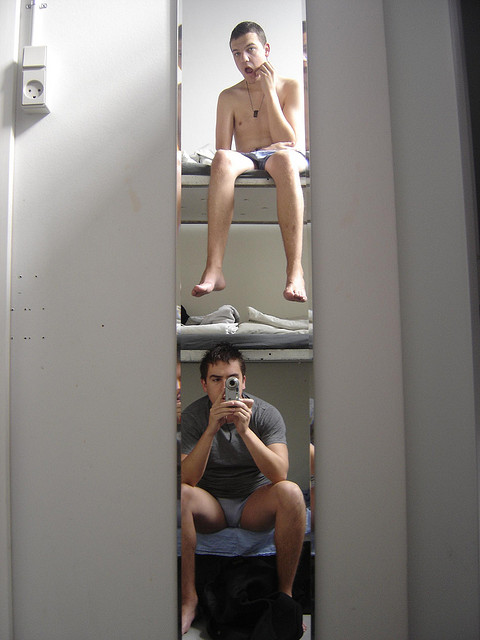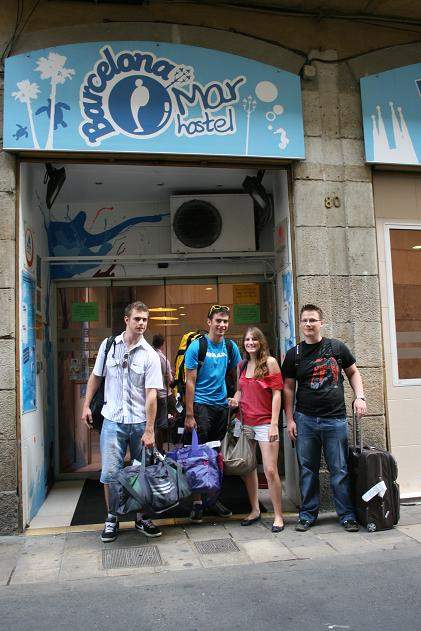When we make the commitment to travel long-term, we usually do so with rose-colored glasses firmly in place. We’re going to see the world! We’re going to have life-changing adventures! We’re going to make out with cute Australians. While long term travel can be nigh-on magical, it’s not without its downsides.
Taking a round the world trip can be a life-changing experience that enriches your life for years to come. You’ll see and do things you never expected, make lifelong friends, and develop a new understanding of the world around you.
But you’ll also face some hard times along the way. You’d be hard pressed to find a traveler who regretted their time spent on the road, but you’d have an equally difficult task trying to find anyone who said that there was never a time when they felt lonely or missed their family or suffered a bit of travel burnout.
There’s no use pretending that life on the road is a nonstop high. Expecting – and preparing for – the less-than-awesome aspects of long-term travel will help you deal when you start to get worn out. Here are some of the downsides of long-term travel, and how to deal with them.
You lose touch with friends’ day-to-day lives
Unless you’re checking Facebook with devoted fervor (which you shouldn’t be if you’re cycling through Laos) it’s easy to lose track of friends’ daily lives. It’s entirely possible that when you return from your trip and ask friends what they’ve been up to, you’ll get “Oh, you know. Working. Hanging out. I’m thinking about moving closer to the city.” And of course they’ve been doing more than that! But all the inside jokes and funny minutia of daily life seem boring when you’re asked to sum up your life on command.
Though we’d never advise compulsive Facebook reading while traveling (what’s the point of leaving home if you never leave your computer?), it is good to let your friends know you’re thinking of them and that you know what they’re up to. When you email them (or write them an actual letter or postcard), mention something you read in their status updates and ask specific questions about their lives. What’s up with their insane-o boss? Are they still dating that girl who doesn’t believe in dinosaurs? Did they see that concert they’d been talking about? It’ll help keep the conversation going so the two of you have something to talk about once you get home. At least, something other than your travels.
>> Read more about staying connected on your RTW trip
Everything you own is vaguely dirty and gross
If you’ve been mashing your clothes into compression sacks and washing them by hand, in cold water, with bar soap for three months – chances are they’ve seen better days. It can be oddly disheartening to wear crumpled, stretched-out, slightly stained clothing day after day.
After three months of backpacking around Southeast Asia and WWOOFing in Greece, my wardrobe dwindled to a pair of flip flops, a pair of jeans, two t-shirts and one sundress – all of which were grungy and unflattering. When I finally arrived in Milan for a two-month teaching gig, I lay siege to H&M and all their gorgeous, gorgeous Western-sized clothing.
[social]
Sometimes westerners can have trouble finding clothes that fit them in other parts of the world. If you’re traveling through a country peopled by petites, you can usually find Western chain stores in large cities or capitols. Sure, it feels gross to go shopping at The Gap when you’re in Bangkok. But it also feels gross to wear the same falling-apart-at-the-seams clothing for seven months. If you’re traveling through Southeast Asia, you can probably get clothes made exactly to your measurements and specifications!
>> Read more about packing for an rtw trip or learn about having custom clothes made in Hoi An
It’s easy to get out of shape
If your life at home consists of mousing around in front of a computer and your travel life is filled with farm WWOOFing and hiking, you’ll probably emerge from you trip a six-packed specimen of awesomeness. But if you’re a gym bunny who’s accustomed to weekly Zumba and yoga classes, it’s easy to fall off the exercise bandwagon while you’re traveling. Nepal doesn’t have much in the way of spin classes.
If you find that your swimsuit doesn’t fit the way you’d like or if that five minute hike is kicking your ass, there are plenty of travel-friendly workouts – here’s a good one. You can also use this as an excuse to work out like a local. Play a bit of pick up soccer, take a surfing or dance class, try broomball, kabaddi, netball or cricket.
>> Get tips for staying in shape on the road
Your diet can quickly become ridiculous
It’s happened to the best of us. You look at your travel budget, see things are a bit tight and decide the best place to tighten your proverbial belt is the food budget. You discover that if you eat only rice with sri racha sauce, you can save $50 a week. Which you can then put towards alcohol.
Or maybe you’re a vegetarian like me and didn’t really investigate the local diet before you booked your ticket. And then you spend three months in Peru and Bolivia surviving on peanuts, yogurt, and french fries. And then you faint at the checkout desk of your hotel in Puno.
Be ye not so stupid as me (or the rice and sri racha eaters). Research the local diet before you head out and bring supplements as needed (I bought a bunch of protein powder once I got to Lima.) Though eating cheap food seems like a great way to save money, you’ll eventually feel sick, tired, and run down if you’re not eating a balanced diet (and then drinking too much on top of that, which many travelers often do). Make sure you get enough fresh produce (there are probably a million little produce sellers where you are), and street vendor food is usually safe, delicious and just as cheap as your rice and sri racha.
>> Find out how to budget for your trip and how to eat well on the road for less
Your romantic life can also quickly become ridiculous
Travel romances are an awesome right of passage for any single traveler. It’s lovely to explore beaches and restaurants with a good looking local or just hook up with that cutie from your hostel. Many travel experiences are more fun when you have someone to share them with, and (let’s keep it real) it’s cheaper to split the price of that private room with the queen sized bed. But eventually, someone’s going to get on a plane, or a visa will run out.
While travel romances are incredibly fun, and some long term relationships have probably started in the bunk beds of South America, it’s hard to build something based on a few weeks of very fun, very unrealistic adventures. It’s not easy to enjoy the beaches of Greece when you’re mooning over that cute Swedish blond you left behind in Thailand. It’s even worse when you decide to meet up again and discover you have nothing in common outside of your fondness for curry and Beer Laos.
In the greater scheme of travel pitfalls, this is a small one, but be wise with your health and your heart. Both are valuable and slow to recover.
>> Get tips for traveling with your partner or find out what you need to know before having sex on your trip
You have virtually no privacy
I recently returned to America after a year of travel and realized that I’ve had 15 days of the last 365 to myself. Every other day was spent sharing space with roommates, housemates and strangers. When you’re traveling, private space becomes an almost unheard of luxury. It’s especially hard to find if you’re traveling on a budget or solo (ironically), because absolutely everything is cheaper when it’s shared.
What to do? Splash out on the occasional private room; your sanity is absolutely worth the extra $20. If you can’t afford that, spend a day by yourself in an off-the-beaten-track park, temple, or museum. If you’re lucky enough to find a house-sitting gig you can have privacy for weeks – or months – at a time!
>> Round our complete guide to hostels, with tips and answers to frequently asked questions
You get over small talk and constantly meeting new people
Meeting new people and making new friends is one of the best things about travel. It’s also one of the most exhausting.
A bit of math: if you travel for 365 days, going to a new city every five days and meet at least three new people in each city, you will meet 219 new people over the course of your trip. That’s a lot of “So where are you from? How long have you been traveling? Where are you going next? What did you think of Angkor Wat?”
The constant hellos and good-byes will start to wear on you. I’ve been known to wear headphones when my ipod was dead, feign sleep, pretend I didn’t speak English, and even read Tolstoy in my more misanthropic moments. But it doesn’t have to be that way. If you find a group of people you genuinely enjoy, try to travel with them for a few days or weeks; it’s nice to have a little travel family of your own making. If your new friends are headed in another direction, try to organize a meet up in another city.
And if you really can’t be bothered talking to anyone new? Just put in those headphones and pull out your copy of Anna Karenina.
>> Find out how to meet people even if you aren’t staying in a hostel
Of course, we all know the benefits of long term travel outweigh most drawbacks, but it’s important to remove those rose-tinted glasses every once in a while and acknowledge the hardships of life on the road.
Read more about long-term travel:
- 12 Ways to Combat the Solo Traveler Blues
- How to Beat Travel Burnout on a Budget
- 10 RTW Travel Myths Debunked
Photos by: Robert Anthony Provost, John Loo, Adam/MadMolecule, Deborah Austin, Ralph Aichinger, Paull Young, Oh Barcelona







